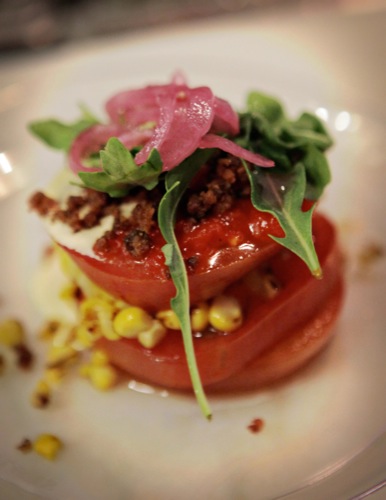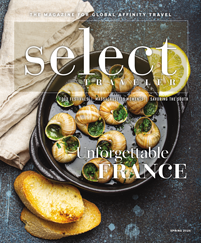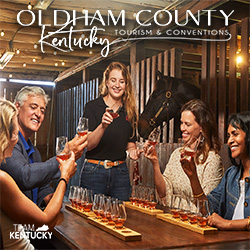
Courtesy Neon Pig Cafe and Grocery
In a region where mac ’n’ cheese counts as a vegetable, Mississippi cuisine promises a lot of fried chicken and fried okra and fried — well — everything. And it’s delicious. But there are some surprising culinary experiences to be found in the Magnolia State.
Some restaurants serve holdovers from the Great Depression, and others add eclectic twists to classic Southern fare. There are opportunities to dine in 200-year-old antebellum mansions, to sit in the very booth Elvis preferred at a local drive-in or to eat at the farm where much of dinner was grown.
Next time your group tours Mississippi, include some of these iconic eateries on your itinerary.
Tupelo
Visitors to Tupelo, Mississippi, might want to avoid the smash burger at Neon Pig Café because “once you’ve tried a smash burger, you’ll never be able to have another burger; it’s incredible,” said Jennie Bradford Curlee, public relations and international sales director for the Tupelo Convention and Visitors Bureau.
Neon Pig, which is also a butcher shop and grocery, grinds trimmings from aged filet mignon, New York strip and other premium meats to make its smash burger patties.
The cafe gets its produce and milk from about 10 to 15 local suppliers, including Native Son Farm, Zion Farms, Memory Orchard and Brown Family Dairy, said Neon Pig co-owner Seth Copeland. The grocery also sells locally made cakes and jellies as well as a “huge” selection of craft beers.
Neon Pig also provides its specialties to other Tupelo restaurants; one of its sauces is available at South, Tupelo’s newest restaurant, and the smash burger is on Blue Canoe’s menu.
“We’re trying to make a network out of all the locally owned restaurants,” Copeland said.
Blue Canoe, which features live music each week and has more than 100 beers, also serves fried black-eyed peas and a Surf and Turf burger that has crawfish ground into the patty.
South opened this spring and offers “soulfully prepared Southern food” such as fried chicken skins, and Johnnie’s Drive-In remains a favorite because it was a favorite of the King.
“They still have the booth where Elvis actually would sit and enjoy a dough burger and an RC Cola,” Curlee said.
For those who want to get closer to the earth, Native Son Farm sometimes offers farm-to-table dinners “to highlight growing and eating locally,” said owner Will Reed.
Reed and his wife, Amanda, began Native Son in 2010 as a three-quarter-acre garden. They’ve expanded it to a 10-acre organic farm that sells produce to residents and restaurants.
Native Son has held about a dozen farm-to-table dinners in the past two years. Although the dinners are not regularly scheduled, a group could arrange one, Will Reed said.
www.tupelo.net
Corinth
Along the northeast border of Mississippi, closer to Jackson, Tennessee, than to Jackson, Mississippi, is the small city of Corinth, where anyone who visits will inevitably hear about the city’s claim to culinary fame: the “slug burger.”
“It’s actually an experience you need to have,” said Anne Thompson, interim administrator for the Corinth Convention and Visitors Bureau.
Invented by a Corinth butcher during the Great Depression, a slug burger — so named because it cost 5 cents, and “slug” was slang for a nickel — is a combination of ground beef, ground pork and some kind of filler, such as oatmeal or cornmeal.
The patty is deep fried rather than grilled, which gives it a crust “like a small country-fried steak,” Thompson said. Slap it on a bun with pickles, onions and good old-fashioned yellow mustard, and you have a classic Corinth slug burger.
“It’s heresy if you eat it any other way down here,” Thompson said.
Although locals have different ideas about who does it best, the slug burger is available at several restaurants, including the White Trolley Café, the Slugburger Café or Borroum’s Drug Store and soda fountain, the oldest operating drugstore in Mississippi.
Thompson also likes for visiting groups to try another Mississippi staple: hot tamales. Dilworth’s Tamales started as Ferguson’s Tamales. Ferguson’s owner peddled tamales from his pushcart, and Thompson remembers that “everybody would scrounge around for change” because three tamales used to cost a quarter.
Dilworth’s bought Ferguson’s and opened a classic drive-through restaurant in 1962, where they still serve the long, thin tamales that made Ferguson’s — and now Dilworth’s — so popular.
“You don’t eat them with a knife or fork or anything; that’s just too-too,” Thompson said. “You eat them out of a white paper wrapper, and you pinch it up in the middle and scrape it off the paper like you’re eating an artichoke leaf.”









